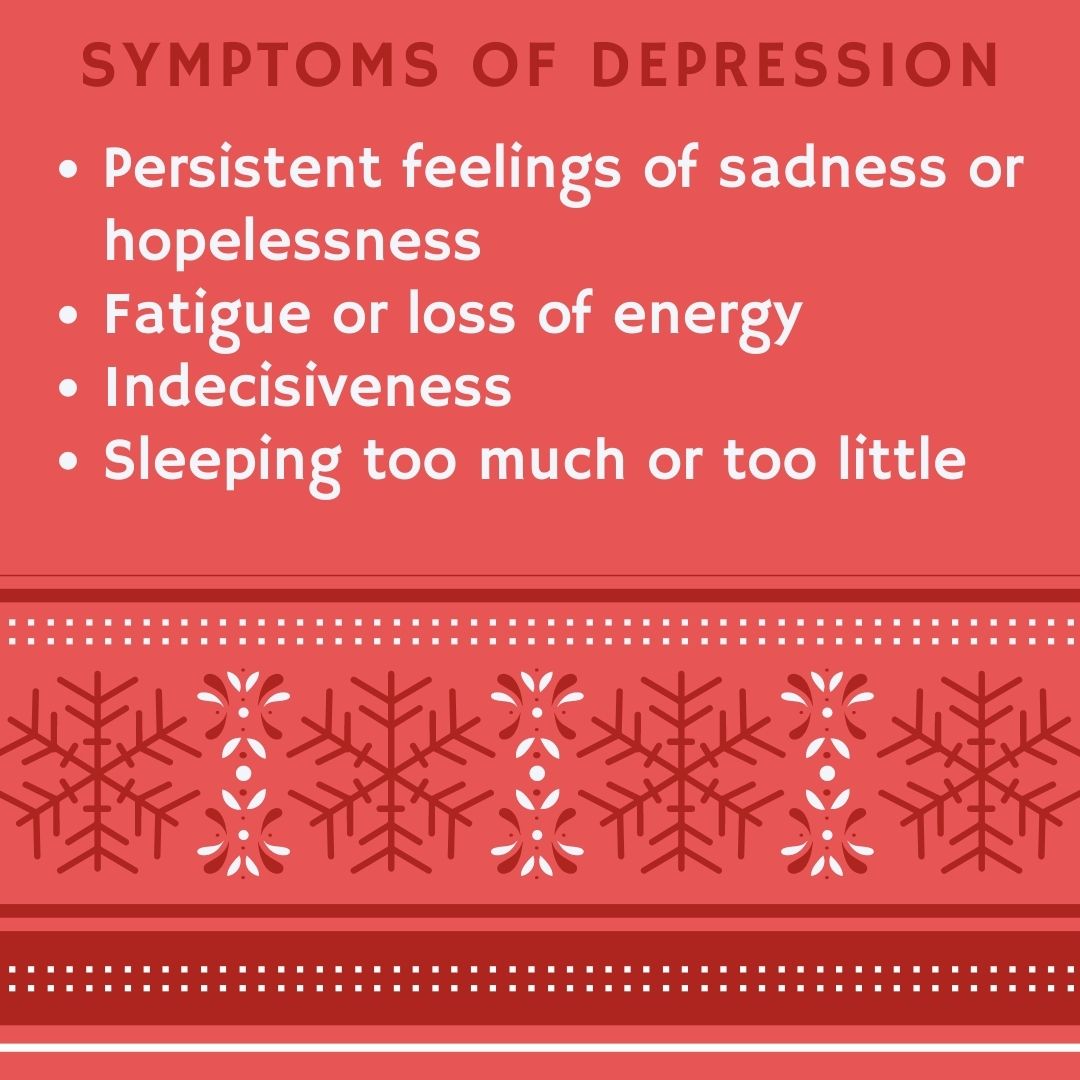How to support your loved ones during this holiday
 During the holiday season, it can be challenging to constantly see advertisements of joyful people posted everywhere and not compare yourself to them. If someone is struggling with a mental illness, the emotions they are feeling may not match what they think they’re supposed to feel around the holidays. This may also be true for people who are currently in recovery. For someone who is sober, the presence of alcohol as a part of festivities can lead to additional pressure and stress. So, how can you support someone you love with a diagnosis or who is in recovery during the holidays?
During the holiday season, it can be challenging to constantly see advertisements of joyful people posted everywhere and not compare yourself to them. If someone is struggling with a mental illness, the emotions they are feeling may not match what they think they’re supposed to feel around the holidays. This may also be true for people who are currently in recovery. For someone who is sober, the presence of alcohol as a part of festivities can lead to additional pressure and stress. So, how can you support someone you love with a diagnosis or who is in recovery during the holidays?


1. Practice Open Communication
Start by asking them what they need or how you can best support them. Instead of avoiding the topic or beating around the bush, be direct. Express to them that you want to help them during this time. You should actively listen to them if they do choose to open up to you. When you listen to them, be sure to validate their emotions. Let them know that what they are going through is real, valid, and hard. Simply by acknowledging this, you can relieve some of their stress and make them feel more cared for and supported.
2. Don’t make alcohol the focus
For someone in recovery from addiction, taking steps to ensure that family gatherings do not revolve around alcohol or drugs can help take some of the pressure off. Holiday cheer doesn’t have to involve alcohol. You can also find new ways to make your loved one feel rewarded. Make new holiday traditions, have a special holiday dessert, or stay up late watching a movie. There are other things you can do to feel festive and cheerful!
3. Reduce stress and manage expectations
Planning ahead so that your loved one knows what to expect for the holiday season can be a great way to reduce stress. Having time to mentally prepare for holiday gatherings, events, or other festivities can be very helpful. Frequently check in with them to make sure you know how they are feeling and if anything has changed. Talk with them about the expectations they have for the holiday season. Let them know that you don’t have expectations for them. For example, if giving gifts is too stressful this year, you two could agree to donate money to a charity together. If going to a party is overwhelming, you could agree to stay for a short amount of time or just skip it.
4. Surround them with support
Having a strong support system is extremely important in the recovery process and for someone with a mental illness. You can be a strong supporter who encourages them to practice daily self-care. You can also work with them to devise escape plans for scenarios where they feel overwhelmed or triggered. For example, if you two agree to go to a family gathering, have a word or phrase they can say to you to let you know that they need to leave without alerting everyone at the party of the real reason why.
5. Take care of yourself too
When you are a caretaker or supporter of someone struggling with their mental health, it is extremely important for you to also pay attention to how you are doing mentally and emotionally. Build self-care into your routine, practice mindfulness, and recognize signs in yourself that show you may be overwhelmed or stressed. Taking care of your own mental health is key to being able to give your loved one the care and support that they need.


Emily Wells is the Northeast Regional Coordinator for MHAET. She lives in Johnson City, TN with her husband, Michael, two cats, Marla and Khaleesi, and dog, Petunia. Her hobbies include being outside, gardening, and hiking with Petunia. She loves working for MHAET because it allows her to meet people throughout the community who care about helping others. She loves meeting students who share their own experiences with mental health and inspire her every day.



